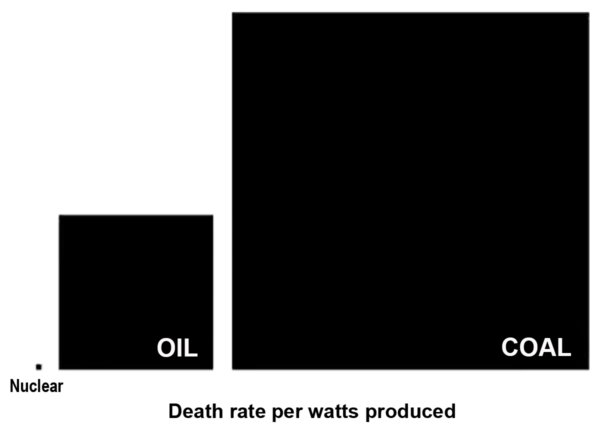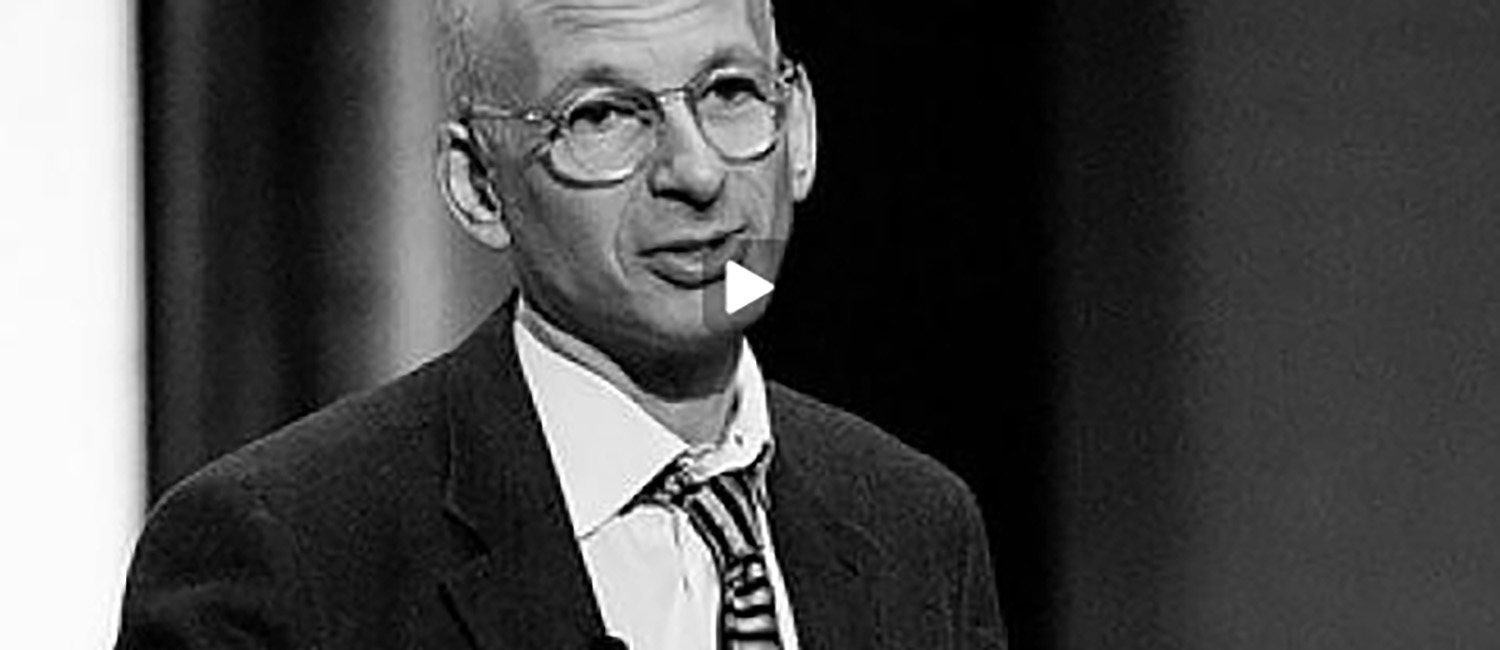
“For every person killed by nuclear power generation, 4,000 die due to coal, adjusted for the same amount of power produced.”
— Seth Godin, The Triumph of Coal Marketing
Official website of the author

“For every person killed by nuclear power generation, 4,000 die due to coal, adjusted for the same amount of power produced.”
— Seth Godin, The Triumph of Coal Marketing

This video is not new. It is Seth Godin’s presentation at the O’Reilly Tools of Change for Publishing Conference in February 2008. But I loved it at the time and still do. It is one of the few discussions of the digital publishing revolution that get me excited about the future rather than just scaring the hell out of me. Godin is a great speaker, self-promoter, and motivator, but there’s plenty of ideas here for ordinary mortals, too.
I recommended the video to a writer-friend today who is gearing up to promote his book, then I had trouble tracking it down on the web, mostly because I could not remember the name of it. So here it is, John: “10 Bestsellers: Using New Media, New Marketing, and New Thinking to Create 10 Bestselling Books.” Enjoy.
[Update 5.5.2023: This video is no longer available.]
It may be difficult for non-writers to understand why, as my last post suggested, writers become anxious as the end of a project approaches. You would think, after staring at a manuscript for months, even years, any sane writer would be relieved finally to be done with it.
David Remnick described the anxiety of finishing in a 1997 review of Big Trouble (link requires subscription), the last book by J. Anthony Lukas. In June 1997, Lukas killed himself while the manuscript was in final edits.
There are few writers of value who do not approach the end of a long project with at least some sense of dread, a self-lacerating concession that the book is not so much finished as abandoned and that positively everyone will see all the holes that are surely there, all the illogic, the shortcuts, the tape, the glue. Finishing is more about terror than about exhilaration. In a way, it is like beginning.
Lukas’s tragedy involved more than the angst of a perfectionist writer, of course. He had been fighting a long battle with depression, and there had been several suicides in his family, including his own mother.
But Remnick is right: every writer of quality knows the anxious feeling of publishing a manuscript that he knows is flawed. Artworks are imperfect by nature. Creative decisions do not have correct answers. A long manuscript is the sum of a thousand subjective choices, compromises, trade-offs, improvisations. You close one hole, another opens. No one is more aware of this than the writer himself.
The solution, in Seth Godin’s word, is to ship. Yes, you will fail. You will fall short of perfection, even of your own expectations. “No matter,” Samuel Beckett said. “Try again. Fail again. Fail better.”
Seth Godin advises writers and other artists (at around 7:45 of this video), “What you do for a living is not be creative. Everyone is creative. What you do for a living is ship.… That is the discipline of what a creative artist does.” Even allowing for a little hyperbole (obviously artists have to be creative and ship), it is a useful reminder.
I ran across this clip the other day, just as I have been laboring to finish my third novel. And “laboring” is just the word for it: after a December that was by far my most productive month ever, I have been useless in January. I have not been writing well enough. Much, much worse, I haven’t been writing enough, period. I have rationalized my January slump as exhaustion and “part of the creative process” and all the usual horseshit, but listening to Godin I wonder if it isn’t the lizard brain after all — fear of finishing, of showing your work, being judged. Yes, even now, with two books under my belt.
I have sometimes been jealous of my writer-friends who were trained to write on deadline. Advertising copywriters do not learn to write truthfully, and journalists do not learn to write beautifully. But they do learn to finish. Or call the damn thing finished, whatever imperfections remain, and move on to the next assignment. In the long run, that may be the most valuable skill of all.
Finish. Ship. Next project. That is the unpoetic reality of being a writer. All writers know this, yet all writers need to hear it again and again. Myself included.
Source: Seth Godin: “Quieting the Lizard Brain” on Vimeo. Read Godin’s blog on the same subject here.
“One key element of a successful artist: ship. Get it out the door. Make things happen.
“The other: fail. Fail often. Dream big and don’t make it. Not every time, anyway.”
I had an interesting conversation on Saturday with Bruce Spector, the founder and CEO of a new web service called LifeIO. (See the end of this article for an explanation of what LifeIO is all about.) Bruce was part of the team that developed WebCal, which Yahoo! acquired in 1998 to form the core of its own calendar service, so he has been watching the web with an entrepreneur’s eye for some time now and he had an interesting take on the whole “free” debate and how it might apply to book publishing.
If you somehow missed the recent back-and-forth about Chris Anderson’s book Free, read the pro-“free” comments by Anderson, Seth Godin and especially Fred Wilson, and the anti-“free” perspective by Malcolm Gladwell and Mark Cuban, among many others. This piece by Kevin Kelly, not directly about “free,” is very good, too.
For the uninitiated, the issue boils down to this: The marginal cost of delivering a bit of information over the web — a song, a video, a bit of text like this one — is approaching zero. As a result, information is increasingly available, and consumers increasingly expect to get it, for free. So traditional “legacy” information-sellers like musicians or movie studios or newspapers, whose actual costs are very far from zero, have to figure out how to turn free-riders into paying customers — and fast, before they go out of business. Fred Wilson’s answer is “freemium“: you lure the customer in with a free basic service, then up-sell the heaviest users to a premium version of your product. As Wilson puts it, “Free gets you to a place where you can ask to get paid. But if you don’t start with free on the Internet, most companies will never get paid.”
How does all this apply to book publishing?
Here are some of Bruce Spector’s ideas. He is a great talker, though, and a summary like this doesn’t do him justice. Also, this was a private conversation, but Bruce kindly gave me permission to repeat some of his comments here.
Seth Godin on the future of blogs like this one:
Walt Whitman and Ben Franklin were both printers who became writers … one would imagine they did this because it was cheaper to write your own stuff than hiring someone, and having words to print and sell is good business if you’re a printer. … Today, of course, being a printer is no fun. Anyone can be a digital printer, publishing their words to the web. And so we have a mysterious flip, in which writers are becoming “printers,” not the other way around. In a world in which just about everyone is a writer and just about every writer wouldn’t mind benefiting from their work, there’s a huge need for people who can help us publish profitably.